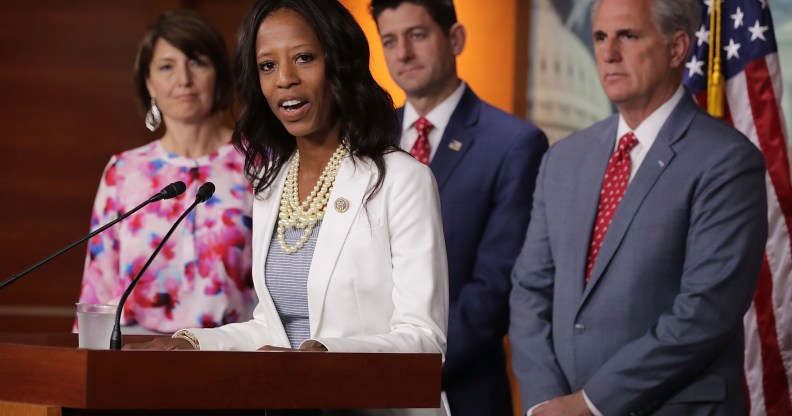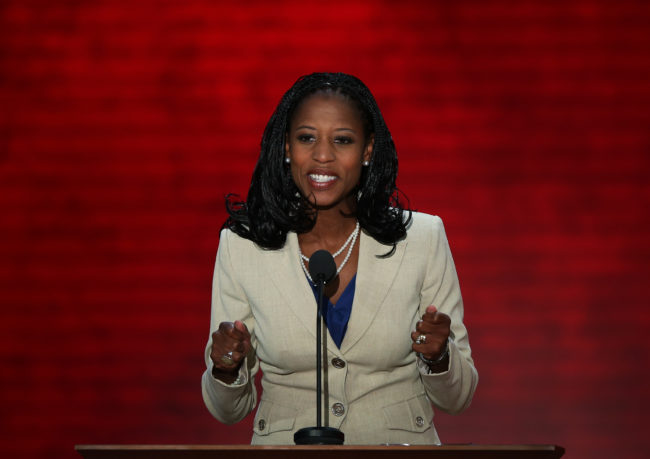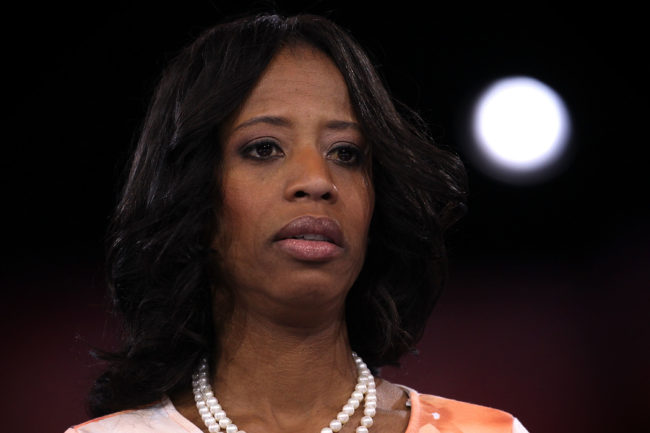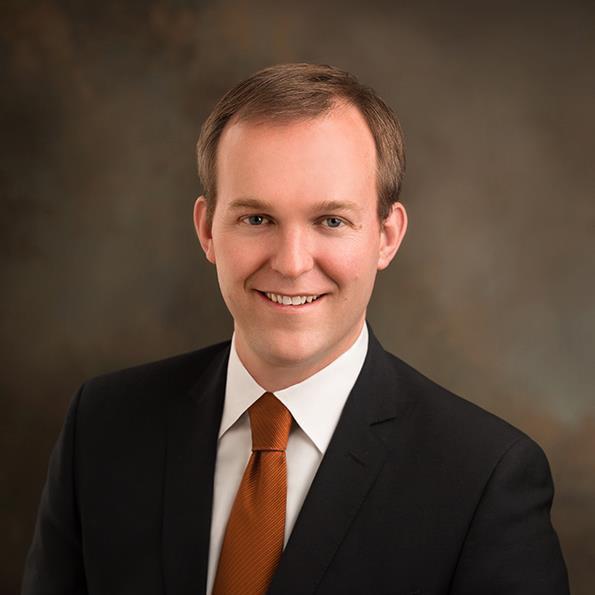Anti-gay marriage Republican Mia Love loses re-election battle

Rep. Mia Love at a press conference with Republican leaders (Chip Somodevilla/Getty)
Utah Republican Rep. Mia Love has conceded defeat in her re-election battle, after repeatedly targeting her opponent’s pro-gay views.
Love, who had represented Utah’s 4th district in the US House of Representatives since 2015, conceded defeat to Democratic Salt Lake County Mayor Ben McAdams after the November 6 midterms.
The result took several weeks to establish as just 694 votes separated Love and McAdams, out of the 269,000 cast in the race.
In the campaign, Love lashed out at her opponent’s “East Coast liberal values” and hit out at him for “championing gay marriage.”
Mia Love attacked her opponent’s pro-gay stance
In messages to supporters quoted in Metro Weekly, she referred to her opponent as “Moderate McAdams, who says he was ‘pleased’ with the Supreme Court legalising same-sex marriage.”
The comments were dismissed by LGBT+ activists as a brazen attempt to appeal to hardline conservatives in Utah, the home of the Mormon Church.

Utah Rep. Mia Love speaks during the Republican National Convention in 2012. (Mark Wilson/Getty)
Equality Utah accused Love of “using gay families to attack her political opponent Ben McAdams,” adding: “We need politicians who will unite Americans, not divide us. Sadly, Love’s campaign has chosen their path.”
In 2013, Love said the US Supreme Court decision to strike down the Defense of Marriage Act was “just wrong.”
She wrote in a statement on Facebook: “I, along with most Utahns, am very disappointed by decisions released today by the Supreme Court pertaining to gay marriage.
“The fight is not over, however, and the battle in support of Utah and American families will continue. I am committed to join with Utah voters to continue the fight.”

Rep. Mia Love (R-UT) speaks during the Conservative Political Action Conference (CPAC) March 3, 2016 in National Harbor, Maryland. (Alex Wong/Getty)
In her concession speech on November 26, Love blamed President Donald Trump for her loss, criticising “the President’s behaviour towards me” and attacking his temperament as an “insufficient way to implement sincere service and policy.”
Ben McAdams supports LGBT+ rights
Congressman-elect Ben McAdams is one of Utah’s most consistent supporters of LGBT+ rights.
As a state lawmaker in 2012, McAdams sponsored a bill to outlaw discrimination in Utah based on gender identity and sexual orientation. The Democrat also passed LGBT+ discrimination protections in Salt Lake City.

Congressman-elect Ben McAdams (Official photo)
In 2015, he said of the US Supreme Court equal marriage ruling: “I’m pleased and happy that our nation’s highest court has ruled on marriage equality.
“This decision enshrines what I’ve long believed—that all families should be treated equally under the law.”
After Love conceded defeat, McAdams said: “Today, I spoke with Rep. Mia Love who called to graciously congratulate me on the outcome of the election.
“I thanked her for her service to our state and country. I wish her the best. There’s a tremendous amount of work to get done and we need bipartisan unity to do it.”
Midterm elections saw wave of new LGBT+ lawmakers
The midterm elections were a breakthrough moment for LGBT+ lawmakers, who gained significantly more representation across major political office.
Although the Republicans fielded zero out LGBT+ candidates for federal or statewide office, a swing towards the Democrats ensured greater representation.
The Democrats picked up a total 40 seats in the House, while out lawmaker Kyrsten Sinema flipped a Senate seat in Arizona despite Republicans increasing their majority in the chamber.
Before the election, there were six out LGBT+ lawmakers in the US House of Representatives, one in the Senate, and one in a governor’s mansion.
Following the election, there are nine out LGBT+ people in the US House, two in the Senate, and two in Governor’s mansions.
Annise Parker of LGBTQ Victory Fund said: “Never in our nation’s history have so many openly LGBTQ people decided to run for office and be the change they demand to see in the world – and we are determined to ensure this energy does not fade.
“We were able to ensure many of these leaders crossed the finish line on Election Day, and importantly, LGBTQ incumbents were overwhelmingly reelected by voters in states both red and blue.”
Parker added: “LGBTQ political power is growing and we are ready to flex our muscles in local government, state Houses and the U.S. Congress, but as believers in the power of representation, we know LGBTQ candidates and elected officials must reflect our beautifully diverse community.”

